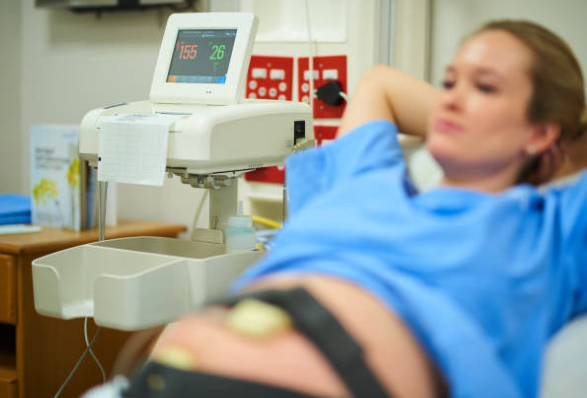Things beep in hospitals. So. Many. Things.
They’re often loud, persistent, and quite frankly, alarming. (….get it?) For people who have never been in a hospital before, the sudden beeping or dinging of a device, while hooked up to monitors and alone in their hospital room, can be cause for concern. You might already know from taking a King of Prussia Doulas Childbirth Education Class that fear and adrenaline can actually work against us in labor. Therefore, I have the following tips to assuage some of that fear and allow you to get back to what you’re really there for- labor!
The beeping of hospital equipment in labor room is almost never an emergency
The main sources of beeps that you will encounter are:
- IV pumps- the IV pump battery is low or finished infusing
- the blood pressure/pulse ox monitor- cuff wasn’t on properly
- the fetal monitor- out of paper
- the baby warmer- warmed up but it doesn’t sense there is a baby in it
You get the idea here though right? Things that aren’t a big deal, just a nudge to be addresses.
Truly urgent information is transmitted to your care team via central monitoring technology, so they can see immediately if you have a high blood pressure, for example, or if there is something unusual with the fetal heart rate tracing.
Always let your nurse know if the hospital equipment in labor room is beeping
The last thing anyone wants is for you to be sitting there listening to an obnoxious alarm, even if it is benign, and we want the source of the beeping to be addressed–you just don’t need to panic in the process.
When you are admitted, ask about the technology in the room
Have your nurse give you a quick tour of the equipment and it’s purpose. When an alarm goes off and the nurse comes in to help, ask about the source of the noise. If you can recognize a familiar alarm for what it is (e.g. “We’re out of paper again!”), you will be less likely to have a heightened response to it.
You can also ask if frequent alarms can be turned down or muted
Most devices have the ability for the volume to be decreased, so they will be less disruptive to you and your support people.
Finally, if all else fails, turn the alarm into something else entirely like this mom did!
Danielle McFadden, RN, CLD



